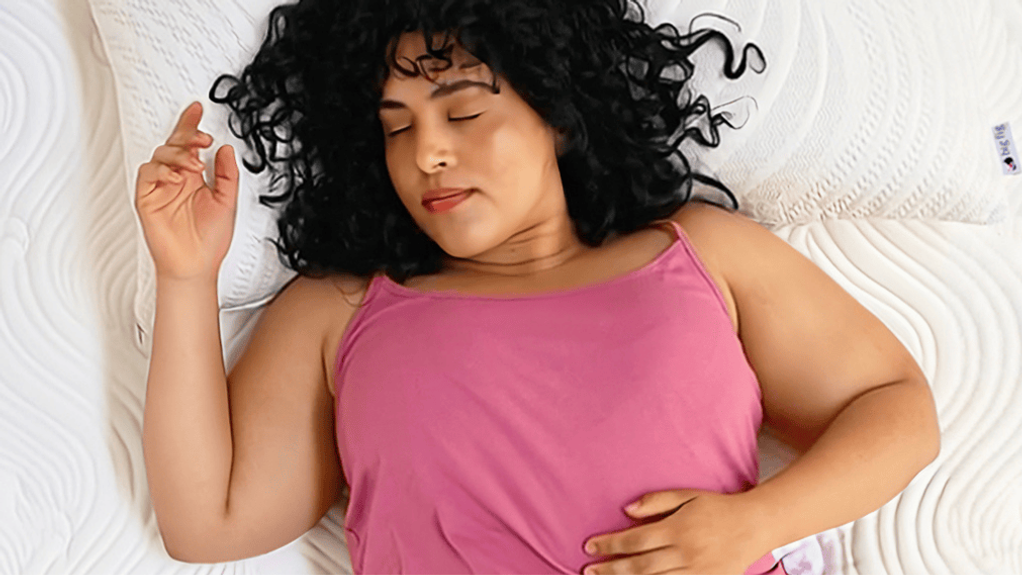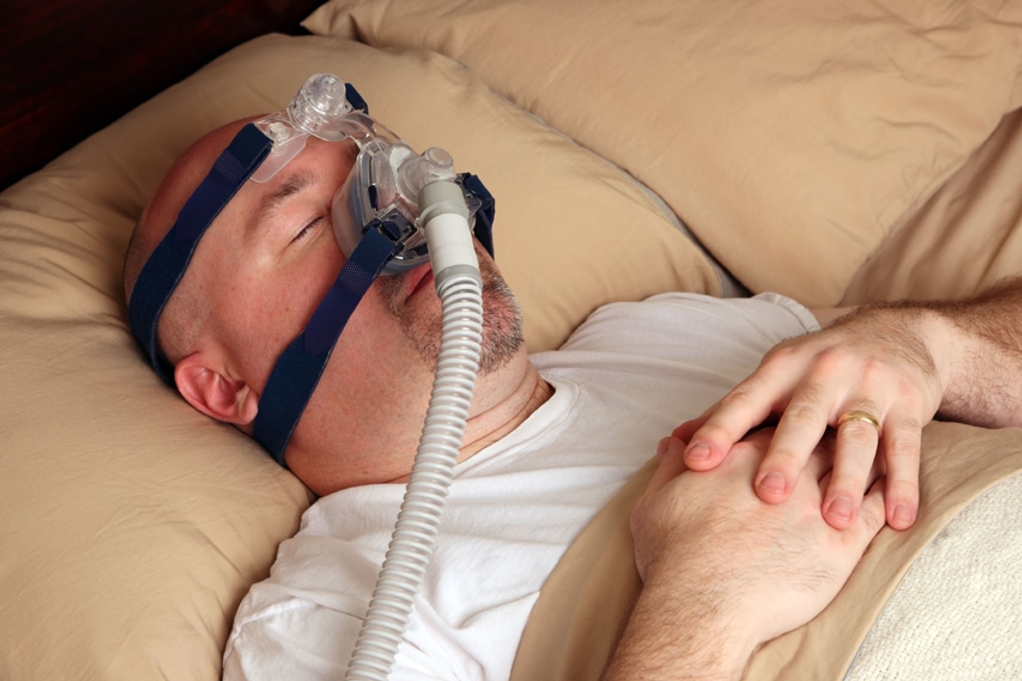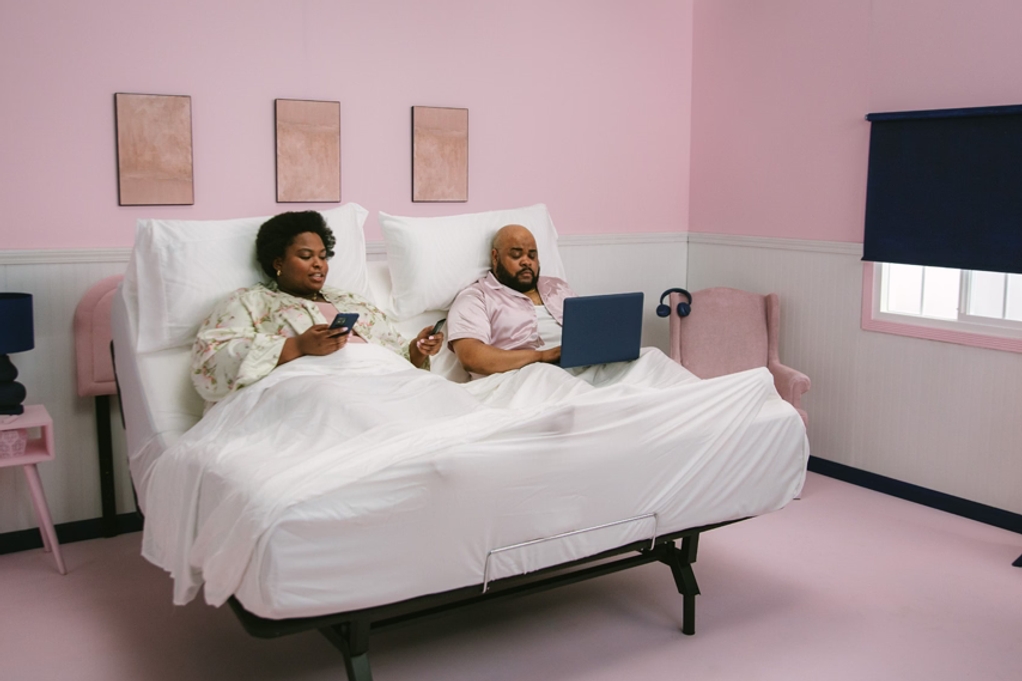While you may be familiar with sleep disorders like insomnia and restless leg syndrome, understanding sleep paralysis, per the Sleep Foundation, is crucial if you've been struggling with getting uninterrupted sleep. Let's delve into what causes sleep paralysis so you can identify any symptoms and start improving your sleep quality. After all, what’s the point of having a fantastic mattress like the Big Fig if you can’t fully enjoy it, right?
What is Sleep Paralysis?
Sleep paralysis occurs when there's a disruption in the transition between wakefulness and sleep, particularly during REM (rapid eye movement) sleep. This is the stage when the body is naturally paralyzed to prevent you from acting out on your dreams. While this temporary paralysis can be a bit frightening, it's usually harmless and not a sign of a serious underlying condition.
Types of Sleep Paralysis
Isolated sleep paralysis (ISP)
According to Harvard Health, Isolated sleep paralysis occurs when you are temporarily unable to move or speak despite being aware of your surroundings. How long does sleep paralysis last? It typically lasts anywhere from a few seconds to a couple of minutes and is often accompanied by a sense of pressure on the chest, difficulty breathing, or hallucinations.
Recurrent isolated sleep paralysis (RISP)
Recurrent isolated sleep paralysis) is when you experience episodes of sleep paralysis regularly but without any other associated sleep disorders.
What Causes Sleep Paralysis?
Why does sleep paralysis happen? Let’s dive into the various factors influencing this harmless yet disturbing disorder.
Sleep Cycle Disruptions
Sleep paralysis commonly occurs during transitions between sleep stages, especially when waking up from REM sleep. If your sleep cycle involves frequent awakenings or transitions, you might be more prone to experiencing these episodes.
Sleep Deprivation and Stress
When you're sleep-deprived, your body might enter REM (Rapid Eye Movement) sleep more quickly, which increases the chance of experiencing sleep paralysis. Additionally, if you’re prone to high levels of stress and anxiety affect your sleep quality and may make sleep paralysis more frequent.
Irregular Sleep Schedules
Inconsistent sleep patterns can disrupt your body’s internal clock, leading to fragmented sleep cycles, which increases your chances of getting sleep paralysis.
Sleep Disorders
If you already have an existing sleep disorder such as insomnia, sleep apnea, or narcolepsy, you’re more apt to experience sleep paralysis because your sleep cycles are interrupted or inconsistent.
Mental Health Conditions
Sleep paralysis is often associated with mental health conditions, such as anxiety, depression, bipolar disorder, post-traumatic stress disorder, and obsessive-compulsive disorder.
Genetic Factors
According to the Sleep Foundation, studies have found a higher risk in people with a family history of sleep paralysis. However, specific genes related to the disorder haven't been definitively identified.
Substance Use
Substance abuse can influence the occurrence of sleep by disrupting sleep patterns, negatively impacting REM sleep, causing withdrawal effects, and increasing stress and anxiety.
How to Prevent Sleep Paralysis
The tips for preventing sleep paralysis all boil down to the basics of getting a good night’s sleep, which is vital for overall sleep health.
Maintain a Regular Sleep Schedule
We know this one can be tough, but make an effort to go to bed and wake up at the same time every day to regulate your internal clock — even on the weekends when possible! Consistent sleep patterns can reduce the likelihood of sleep disturbances, including paralysis.
Create a Relaxing Bedtime Routine
Make bedtime something to look forward to by engaging in relaxing rituals before bed, such as reading, taking a warm bath, having a cup of tea, or practicing relaxation techniques. Avoid stimulating activities like intense exercise or using screens right before sleep. Studies by Harvard Health suggest unplugging from electronics two to three hours before bed.
Improve Your Sleep Environment
Along with always keeping your Big Fig Bedding clean, make sure your sleeping environment is like a sanctuary. Invest in blackout curtains, keep the room at a cool temperature (65 degrees Fahrenheit is best), and reduce noise. Keep your room clean, as the American Psychological Association has found that clutter can raise stress and anxiety levels.
Check out our post on Effective Techniques for a Restful Night!
Reduce Stress and Anxiety
High levels of stress and anxiety increase the likelihood of sleep paralysis. Practice stress management techniques such as taking regular breaks, mindfulness, meditation, connecting with others, deep breathing, eating healthfully, or practicing yoga to help keep stress levels in check.
Find the Right Sleeping Position
Some people find that sleeping on their back increases the likelihood of sleep paralysis. Experiment with different sleep positions, such as on your side, to see if it makes a difference.
Limit Drug and Alcohol Use
Excessive alcohol consumption and the use of certain drugs can disrupt sleep patterns, which increases the risk of sleep paralysis.
Address Other Sleep Disorders
If you have a sleep disorder like insomnia or sleep apnea, seek treatment from a healthcare professional. Treating underlying sleep issues can help reduce episodes of sleep paralysis.
Treating Sleep Paralysis
The best treatment for sleep paralysis is to improve your overall sleep habits and reduce stress. Cognitive—behavioral therapy can also be effective for managing stress and anxiety. If sleep paralysis is frequent or severely affecting your quality of life, consult a healthcare professional.
Is Sleep Paralysis Common?
Is Sleep Paralysis Common? Research has found that sleep paralysis is a relatively common experience, with approximately 7.6 percent of the population reporting ongoing episodes. Most people, regardless of gender, will have at least one episode during their lifetimes. Sleep paralysis can occur at any age, but initial experiences usually appear in childhood, adolescence, or adulthood.
Get Better Sleep with Big Fig
A high-quality mattress and bedding made for bigger bods are the cornerstones of getting a good night’s sleep without disrupting your sleep cycle. Big Fig Mattresses feature a plush quilted top infused with THERMOGEL COOLING® technology, which activates with body heat to cool throughout the night. Perforated gel-infused foam increases airflow within the mattress, providing a more comfortable sleeping experience. Don’t forget other bedding and sleep essentials like our Premium Cooling Sheets and Adjustable Body Pillow to help keep disorders like sleep paralysis out of your bedroom!
Prevent sleep paralysis with one of our Big Fig Mattresses!







